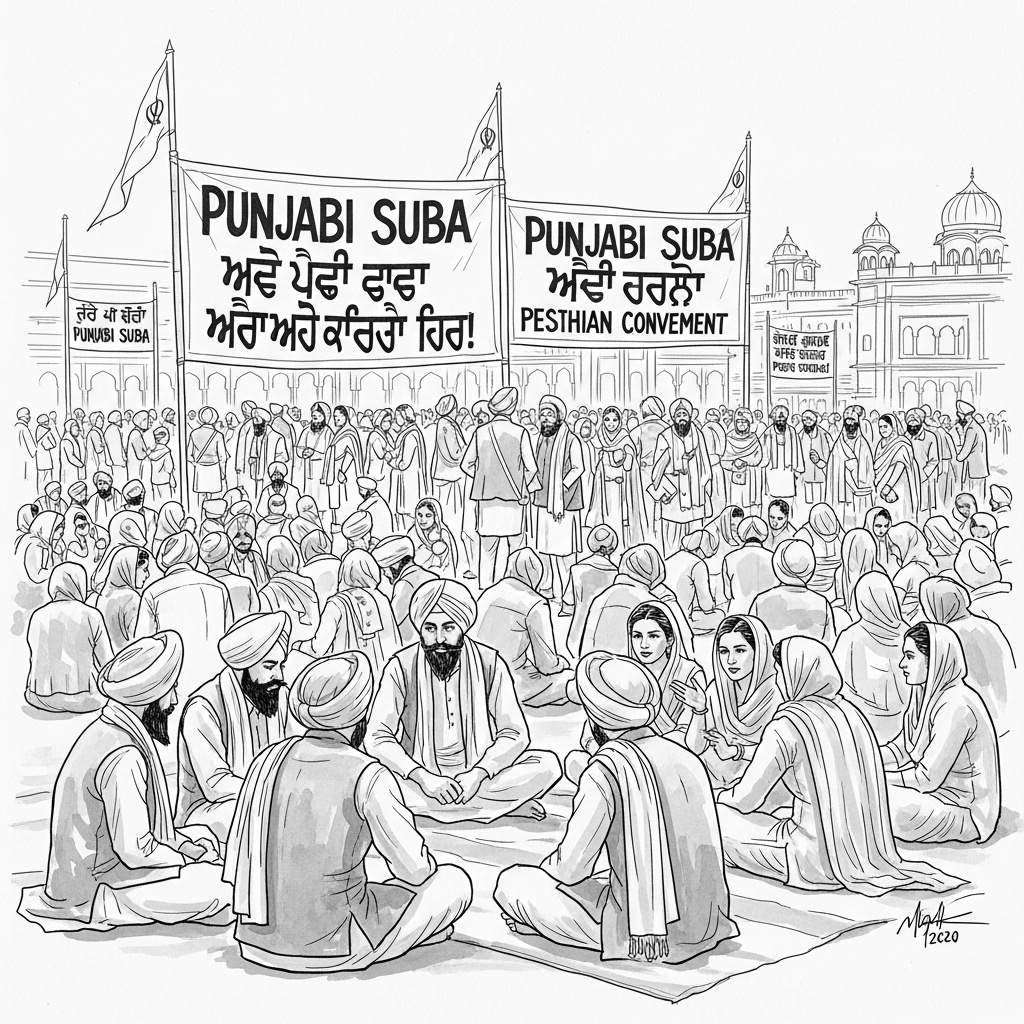_ 🗓️ 1953 — The Punjabi Suba Movement Gains MomentumA major convention in Amritsar galvanized the peaceful, democratic movement for a Punjabi-speaking state.

In post-independence India, the fight for linguistic and cultural identity took center stage with a major convention in Amritsar. The Punjabi Suba Convention, inaugurated by Dr. Lanka Sundaram, brought thousands together to advocate for a state based on the Punjabi language. This was a pivotal moment in a long, non-violent struggle to reorganize state boundaries along linguistic lines, just as had been done for other languages in India. The movement highlights the deep connection between language, culture, and identity. It demonstrates the power of peaceful, democratic protest to achieve political goals and preserve a region's unique heritage. This chapter in history encourages us to value our mother tongue and appreciate the long struggles fought to give it official recognition.
|